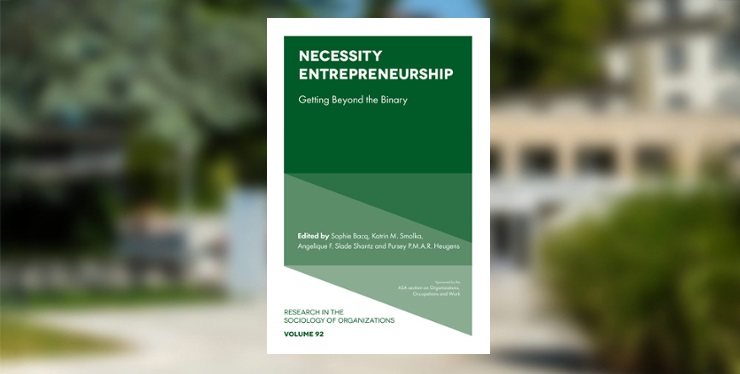
Most corporate boards are failing
Most corporate boards are failing. I’m not only referring to the spectacular failures at Olympus, Yahoo or BP; most boards are not adding the value they could to corporations because they are not being educated properly. It would seem that business schools still see boards as a check on chief executives rather than as a competitive advantage for a company.
Let us take the issue of adding value. Most boards comply with classical corporate governance standards and now follow commonly agreed practices on board size, presence of independent directors, constitution of committees and so on. But within this framework how many chief executives consider their boards to be as effective as their executive team? How many rely on their boards for true value creation? In fact, boards are seriously lagging, to the point that many chairmen consider it acceptable to have board members who do not add value – unacceptable on an executive team.
A large part of the blame for this can be laid at the feet of business schools and the inadequacy of the board education that they provide. Until now most business school research has promoted the view of the board as a control mechanism on chief executives. However, this so-called agency theory (in which executives are self-interested and in conflict with shareholder value creation) is obsolete. Agency-based research has framed regulation and education in a way that is now unproductive and sometimes destructive. As a result, business-school education has failed boards because of the academic obsession with one side of the problem: the control of managerial misbehavior. Such an academic view needs to be readdressed.
Boards today can be a competitive advantage for companies. They can provide an outside view, overcome blind spots in strategy, raise awareness of external risks, connect with governments, society and other stakeholders, give credibility and build trust in ways that executive teams cannot.
Thanks to business-school education, we have well-tuned educational tools and practices for executives. But most board education programs today add little value and instead either focus on the regulatory environment or copy existing managerial education for senior executives.
But boards need more than this to become truly effective. For example, the board’s strategic role is very different to the strategic role of executives. It ranges from supervision (ensuring the company’s strategy is right and well implemented) to co-creation (overcoming blind spots) to supporting the executives (within the company and with outside stakeholders). However, business schools still know relatively little about how to do this well and as a result provide poor strategic education for boards.
Alternatively consider boards and innovation. Boards not only monitor the company’s innovation performance, they actively contribute to it. Board diversity is key in this regard as board members from other industries are faster to foresee sudden industry shifts or disruptive moves. Employee representatives can also be an excellent source of innovative thinking. But again, how do business schools educate board members to perform this vital role?
Board education is failing to address many other important questions, such as which structures enable boards to add real value, as opposed to mere regulatory compliance. And, most importantly, what makes an individual a good board member.
Board education is crucial because today’s chief executives are over-stretched and confronted with an incredible rise in complexity from society, governments, alternative business models, global changes, new risks and opportunities and shifts in economic conditions. Even the very best executives cannot be expected to respond consistently to all these challenges.
In short, the board is now essential to corporate success. It is time that business schools recognize this and create education for board members that hones their skills and makes them a major competitive advantage for their companies.
Didier Cossin is professor of finance and governance at IMD, director of the IMD Global Board Center and program director for High Performance Boards.
This article first appeared in the Financial Times on January 9, 2012.
Research Information & Knowledge Hub for additional information on IMD publications
During the industrial era, companies were the primary forces behind wealth creation, generating value for shareholders, creating employment, and benefiting consumers and communities. Consequently, management studies centred on corporate strategy, ...
Many organizations have mistakenly treated ESG and sustainability reporting primarily as a compliance challenge, prioritizing metrics and internal controls over governance. In particular, what we call compliance panic has led to a misalignment of ...

Necessity entrepreneurship is broadly understood as the identifying and seizing of business opportunities to address basic needs such as food and shelter. This volume proposes new ways of seeing, theorizing, and researching necessity entrepreneurs...
Research Information & Knowledge Hub for additional information on IMD publications
Research Information & Knowledge Hub for additional information on IMD publications
Research Information & Knowledge Hub for additional information on IMD publications
Research Information & Knowledge Hub for additional information on IMD publications
Research Information & Knowledge Hub for additional information on IMD publications
in California Management Review Insights Blog 2 May 2025
Research Information & Knowledge Hub for additional information on IMD publications
in I by IMD
Research Information & Knowledge Hub for additional information on IMD publications
in EDPACS 21 April 2025, ePub before print, https://doi.org/10.1080/07366981.2025.2489227
Research Information & Knowledge Hub for additional information on IMD publications
Research Information & Knowledge Hub for additional information on IMD publications
Published by Emerald Group Publishing Limited ©2025
Research Information & Knowledge Hub for additional information on IMD publications





